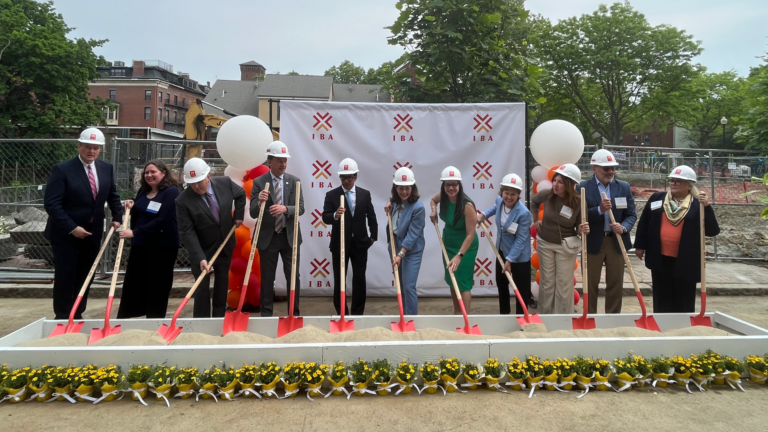Community
La CASA: The Center for Arts, Self-determination, and Activism, is set to be the largest facility of its kind in New England.

At a groundbreaking ceremony on Thursday, state officials and local nonprofit leaders came together to celebrate a new community center and hub for Latino arts, culture, and community coming to the South End.
La CASA: The Center for Arts, Self-determination, and Activism is set to be the largest facility of its kind in New England, spanning 26,000 square feet. The center will serve as a permanent home for Latino arts, community, and activism at 85 West Newton St. in the historic South End neighborhood of Boston.
The $33 million project was facilitated by Inquilinos Boricuas en Acción (IBA), a decades old non-profit in the South End offering affordable housing and programming to increase social and economic mobility. MassDevelopment issued a more than $12 million tax-exempt bond on behalf of IBA, which will use the proceeds to build the center.
IBA CEO Vanessa Calderón-Rosado said La CASA will allow the organization to consolidate its programs and administrative functions under one roof, and help facilitate better collaborations between its own programs and other external partners.
“At IBA, our mission has always been that a building is more than its walls. It is the place where pathways to building community, culture and generational success are created,” Calderón-Rosado said. “As we break ground today, we’re laying down the foundation for a new era of community empowerment,” she added.
The four-story, multipurpose community space is expected to open by the end of 2025 or early 2026, after 19 months of construction, according to Calderón-Rosado. It will include galleries and spaces for arts education, performance, and community gatherings with a multi-purpose community arts space on the first level. It will also feature flexible spaces for IBA’s programs, services, property management, and community activities.
The building will be LEED certified once complete, and will feature an exterior that brings together elements of Latino-Caribbean culture with nineteenth century architecture. The street level of the building will have a glass exterior to “invite people to come into the space and be welcoming to the community,” Calderón-Rosado said.
Not only will La CASA be a place for the community to come together, but it will also fill a much needed space for Latino artists, which Calderón-Rosado said the city, state, and region is currently missing.
“There’s not such a place, so we’re looking to really fill that gap in which the Latino community can come and celebrate their heritage and culture, but more importantly, build cross cultural bridges with other communities,” she said.
Edward Augustus, the state’s housing secretary, praised the center as a dedicated hub for up-and-coming Latino artists.
“Arts and culture is such an important part of the Latino experience here in the city of Boston. The idea that we would have the largest facility makes all sorts of sense,” he said.
One of those up-and-coming artists is Victoria DelValle. DelValle is a Puerto Rican visual artist and former resident of the Villa Victoria, an affordable housing complex in the South End. DelValle said she is “ecstatic” about the new center.
“As I’m evolving in my career, and know so many other Latino artists, I want to bring them into this space and highlight them and make new memories for the community,” she said.
DelValle was involved in IBA’s youth programs at Villa Victoria and later attended New York University. She is the first person in her family to attend college. She said she is excited for the center to celebrate and preserve the South End’s history and culture as a hub for Latino culture and communities.
“I’m really excited for other people that live in Boston to understand the history of this area, because Tremont Street used to be the center of Black and brown businesses,” she said.
“To see how it has evolved and to see the places that still hold that history, it’s just beautiful, and I want more people to experience that.”
Newsletter Signup
Stay up to date on all the latest news from Boston.com








Leave a Comment